The aim of the Conference is to bring together stakeholders at the EU-level, to exchange on available and upcoming tools in the area of digital and precision applications and work towards a progressive and compliant development of risk assessment and risk management instruments enabling these new application techniques.
For the Digital Agriculture Conference, we can offer a special rate of € 200,00 + VAT, exclusively to a limited number of pertinent competent authorities (competent authorities of the EU Member States) and exclusively for on-site participation.
Click here to benefit from this fee (please be prepared to provide evidence of your affiliation).
Digital Technologies in agriculture are seen by regulators and stakeholders as an enabler of the objectives of the Green Deal and Biodiversity Strategy, as well as of the principle of Sustainable Food production systems in Europe. Precision applications are part of this innovation, and there is a need to link the technology to regulatory needs for data generation and risk assessments.
The Conference will be taking place in Dusseldorf/Germany on 10 and 11 April 2024.
You can also follow all the exciting contributions via our live stream!
Please find all information on the virtual participation here.
Regulatory Status
Relevant Developments & Regulatory Challenges
Technology & Research
Professionals working in the fields of:
Sectors that should take part:
Picture Credit: © elenabsl - AdobeStock
PLEASE NOTE: The indicated times refer to Central European Time CEST.
For further time zones, please view here.
Anne Alix, Corteva Agriscience, United Kingdom
Jonas Schartner, German Federal Office of Consumer Protection and Food Safety (BVL), Germany
Anne Alix, Corteva Agriscience, United Kingdom
Jonas Schartner, German Federal Office of Consumer Protection and Food Safety (BVL), Germany
Eric Liégeois, European Commission, Belgium (virtual presentation)
Domenica Auteri, European Food Safety Authority (EFSA), Italy
Tom Bals, Independent Consultant, United Kingdom
Alexander Pfaff, Federal Office of Consumer Protection and Food Safety (BVL), Germany
Joachim Dressel, Syngenta, Switzerland
Rena Isemer, Bayer, Germany
Alf Aagaard, Danish Environmental Protection Agency, Denmark
Anne Steenbergh, Board for the Authorisation of Plant Protection Products and Biocides (Ctgb), The Netherlands
Melissa Reed, Health and Safety Executive / Chemicals Regulation Division (HSE/CRD), United Kingdom
Oliver Schmittmann, University of Bonn
Vegard Line, Kilter, Norway
PLEASE NOTE: The indicated times refer to Central European Time CEST.
For further time zones, please view here.
Anne Alix, Corteva Agriscience, United Kingdom
Jonas Schartner, German Federal Office of Consumer Protection and Food Safety (BVL), Germany
Jens Karl Wegener, Julius Kühn Institute (JKI), Germany
Grant Stark, Health and Safety Executive / Chemicals Regulation Division (HSE/CRD), United Kingdom
Emilio Gil, Universitat Politècnica de Catalunya, Spain
Vincent Guth, Corteva Agriscience, France
Martina Keller, Agroscope, Switzerland
Name
Company

Aalf Aagaard
Danish Environmental Protection Agency (EPA), Denmark
Alf Aagaard is an Environmental Risk Assessor at the Danish EPA and an External Lecturer in ecotoxicology and environmental risk assessment at the University of Copenhagen. At the EPA, he assesses pesticides at European level and at zonal/national level for product registration. Alf has also worked on European Water Framework Directive regulation of chemicals, including procedures for prioritising chemicals of concern and derivation of Environmental Quality Standards and between 2007 and 2010 Alf joined the European Food safety authority EFSA as Senior Scientific officer.
moreless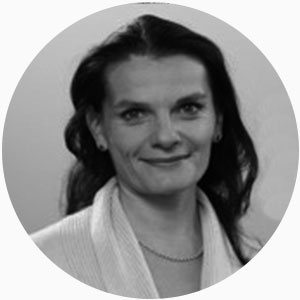
Anne Alix
Corteva Agriscience, United Kingdom
Anne Alix joined Dow AgroSciences, now Corteva Agriscience, in 2011, as distinguished laureate in Policy and Risk Management for Europe, Middle East and Africa, where she advises on sustainability policies and precision applications. She has been working in the area of plant protection products risk assessment for 23 years. After a PhD in Integrated Pest Management (IPM) at the University of Rennes, Anne joined the French National Institute for Research in Agronomy (INRA) as an ecotoxicologist in the scientific unit for the risk assessment of crop protection products. Anne was nominated head of the Environment and Ecotoxicology risk assessment unit at the French Agency on the safety of Food (AFSSA, now ANSES), where she initiated scientific collaborations with the pesticide unit of EFSA. Anne then joined the French Ministry of Agriculture as the deputy head of the Section for Regulation of Plant Protection Products and fertilizers, in charge of the implementation of risk mitigation measures for pesticides and of post registration monitoring.
morelessDomenica Auteri
European Food Safety Authority (EFSA), Italy
Domenica Auteri is an Ecotoxicologist with more than 20 years of experience in the field of regulatory environmental risk assessment of pesticides. She is the Team Leader of the Ecotoxicology Team in the Pesticides Peer Review Unit of the European Food Safety Authority (EFSA).” She was responsible for the review of the neonicotinoids. She coordinated, from EFSA side, the drafting of the ECHA/EFSA guidance on identification of endocrine disruptors. Currently she is leading her team for with the review of the guidance documents for birds and mammals and bees.
moreless
Tom Bals
Independent Consultant, United Kingdom
Tom Bals worked for 40 years for the SME Micron Sprayers Ltd (who manufacture innovative rotary atomiser and other equipment for crop protection and sell worldwide - with particular emphasis on developing countries), becoming Managing Director in 1988 and Chairman in 1993 (with Micron gaining a UK Queens Award to Industry, a CWDE Award for long term commitment to sustainable development and various other awards during his tenure). Tom retired from Micron in September 2020, but has continued his involvement with AEA, CEMA and Standards projects.
moreless
Joachim Dressel
Syngenta, Switzerland
Joachim Dressel is the Regulatory Lead for Precision Application and Digital Agriculture- in region Europe at Syngenta. He has previously held roles as Senior Regulatory Manager for insecticides, fungicides and herbicides at Syngenta, as an environmental consultant and as environmental exposure expert at BASF. He holds a PhD in Agricultural Sciences and has a passion for agriculture as well as our environment.
morelessEmilio Gil
Polytechnic University of Catalonia (UPC), Spain
Emilio Gil is a Full Professor at the Universitat Politecnica de Catalunya in Barcelona (Spain). He is the Head of Unit of the Agricultural Machinery Research Group, and has been professor at Cornell University (ISA). Expert member of ISO in several Working Groups related with spray application technology. Emilio has over 30 years of experience in the improvement of spray technologies, especially for eD crops. He is also the Author of the Dosaviña App to adjust PPP dose for vineyards and been advisor to several governments, for instance Serbia, Chile, Cyprus and Spain, advising them on the Sustainable Use Directive.
morelessVincent Guth
Corteva Agriscience, France
Vincent Guth is an Application Technology Scientist at Corteva Agriscience. With an educational background in chemical and information technology Vincent previously occupied a wide variety of positions with Corteva and one of its predecessors DuPont Crop Protection, i.a. Global Packaging Lead.
moreless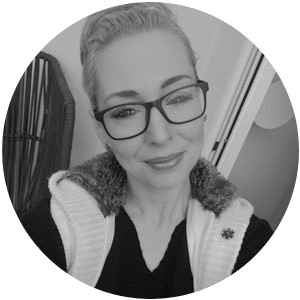
Rena Isemer
Bayer, Germany
Rena Isemer is an Ecotoxicology Expert specialising in non-target plants at Bayer AG in Germany. A molecular biologist by training, Rena has previously worked as research associate at the University of Kiel.
morelessMartina Keller
Agroscope, Switzerland
Martina Keller studied agricultural sciences at the Swiss Federal Institute of Technology in Zurich (ETH). She obtained her PhD at the University of Hohenheim (Germany) in the field of weed science. Currently, she works as a Senior Scientist and Efficacy Evaluator in the Vegetable-Production Extension group at Agroscope. She is responsible for the research projects in weed science and application technology in vegetable production. She is familiar with the registration process of pesticides in Switzerland and is experienced in applied research and carrying out field trials.
moreless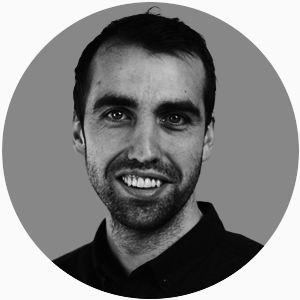
Vegard Line
Kilter, Norway
Vegard Line is the Chief Technology Officer in Kilter AS. He has an engineering background within Cybernetics and Robotics, and is passionately engaged to make a positive contribution to food production by developing and implementing new technology.
moreless
Eric Liégeois
European Commission, Belgium
Eric Liégeois is a Senior Policy Officer at the European Commission in charge of Pesticides Legislation, moderating the Working Group on biopesticides and contributing to risk mitigation measures policy for DG SANTE. Formerly he was the Head-of-Sector for Fertilisers, Plastics and Circular Economy at DG GROW.
moreless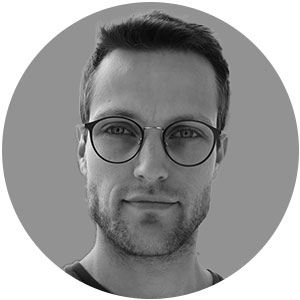
Alexander Pfaff
Federal Office of Consumer Protection and Food Safety (BVL), Germany
Alexander Pfaff has been a Scientific Officer at the German Federal Office of Consumer Protection and Food Safety (BVL) since 2020. At the BVL he is responsible for efficacy management of insecticides and involved in projects for improving the provision of PPP authorisation data. Previously, he studied Crop Protection and finalised his PhD Project on tomato pests.
morelessMelissa Reed
Health and Safety Executive / Chemicals Regulation Division (HSE/CRD), United Kingdom
Melissa Reed is a senior ecotoxicologist currently leading the ecotoxicology team in CRD-HSE. Over the last 18 years she has been involved in many activities related to ecotoxicological risk assessment including contributing to several EFSA scientific opinions related to effects modelling.
morelessJonas Schartner
Federal Office of Consumer Protection and Food Safety (BVL), Germany
Jonas Schartner has been working in the department for Plant Protection Products (PPP) at the German Federal Office of Consumer Protection and Food Safety (BVL) since 2017. Since 2021 he has been leading the subgroup for environment, managing fungicides and insecticides in the PPP authorisation. After studying Chemistry and Biology at the Ruhr-University Bochum he obtained his Masters degree at the Pennsylvania State University, USA. In 2015 he received his PhD in Biophysics at the Ruhr-University Bochum.
morelessOliver Schmittmann
University of Bonn, Germany
Oliver Schmittmann has been responsible for the working group ‚Agricultural Engineering' at the Institute of Agricultural engineering/Department for Agricultural Engineering and Robotic at the University of Bonn, since 2019. His research focusses on applying AI in agriculture. He also has a keen interest in technology and cultivation systems for sugar beet-seeding, weeding, harvesting technology, precision farming,especially sensor technology and subsoil management (Soil3).
morelessGrant Stark
Health and Safety Executive / Chemicals Regulation Division (HSE/CRD), United Kingdom
Grant Stark is Head of the Evidence, Committees and New Technologies team, in the Chemicals Regulation Division of the UK’s Health and Safety Executive. His role includes identifying and determining the potential impact new technologies can have on the risks associated with the application of pesticides. He is currently the Chair of the OECDs Working Party for the Pesticides Drone sub-Group.
moreless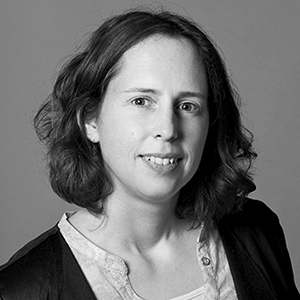
Anne Steenbergh
Board for the Authorisation of Plant Protection Products and Biocides (Ctgb), The Netherlands
Anne Steenbergh is a Policy Advisor in the area of sustainable plant protection at the Dutch Board for the Authorisation of Plant Protection Products and Biocides (Ctgb). A Microbial Ecologist by training Anne is also part of the Ctgb ‘GreenTEAM'.
moreless
Jens-Karl Wegener
Julius Kühn-Institute (JKI), Germany
Jens Karl Wegener has been Director and Professor of the Institute for Application Techniques in Plant Protection at Julius Kühn-Institute (JKI), since 2013, . In 2017 he was appointed to be Honorary Professor at Technical University of Braunschweig, where he is supporting teachings of the Institute for Mobile Machinery and Commercial Vehicles (IMN). Furthermore he is conducting the interdisciplinary and university-covering block module \"Innovative Plant Protection Technologies\" together with students and instructors from five different Universities: His main focus is on optimization and risk assessment of processes and procedures in agriculture. In this context Prof. Wegener intensively studied the possibilities, limitations and benefits of new technologies for different agricultural purposes.
morelessWe have reserved a limited number of rooms for our participants at reduced rates at the hotel. These rooms can be booked up to 4 weeks prior to the start of the event. Please book early and directly through the hotel quoting „Akademie Fresenius“ as reference.
Participation Fee: € 1,995.00 plus VAT.
The registration fee includes the following benefits:
Representatives of an authority or a public university are therefore eligible for a reduced fee of € 895.00 plus VAT per person (please provide evidence). The reduced fee cannot be combined with other rebates.
For the Digital Agriculture Conference, we can offer a special rate of € 200,00 + VAT, exclusively to a limited number of pertinent competent authorities (competent authorities of the EU Member States).
Click here to benefit from this fee (please be prepared to provide evidence of your affiliation).
*limited number of places available.
Group Reductions
For joint bookings received from one company we grant a 15% discount from the third participant onwards.
Terms of Cancellation / Book without Risk
Written cancellations or transfers will be accepted free of charge up to four weeks prior to the start of the event. After this date and up to a week prior to the start of the event we will reimburse 50% of the registration fee. We cannot, unfortunately, provide refunds for later cancellations. However, in this case we will provide you with the event documentation after the event.
Please note that you can name a substitute free of charge at any time.
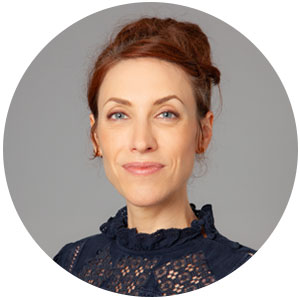
Anne Möller
Programme and conceptual design
+49 231 75896-84
amoeller@akademie-fresenius.de

Anne Möller
Programme and conceptual design
+49 231 75896-84
amoeller@akademie-fresenius.de

Anne Möller
Programme and conceptual design
+49 231 75896-84
amoeller@akademie-fresenius.de
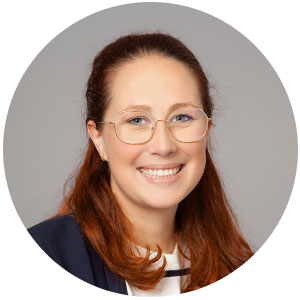
Danielle Sörries
Organisation and participant management
+49 231 75896-74
dsoerries@akademie-fresenius.de

Danielle Sörries
Organisation and participant management
+49 231 75896-74
dsoerries@akademie-fresenius.de
Present your Company at the Event.
You can personally present your products and services directly to your specified target group. We are happy to provide you with further information on our range of available options – from displaying company information at the reception counter to presenting your company with an exhibition stand.
We would be pleased to assist you personally:
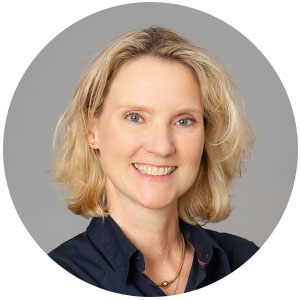
Monika Stratmann
Phone: +49 231 75896-48
info@akademie-fresenius.de
We offer journalists and editors a platform where they can get in touch with the experts.
If you are the editor of a specialist publication and interested in a press pass or media partnership, please contact us well in advance. We are happy to advise you.
Please contact us:
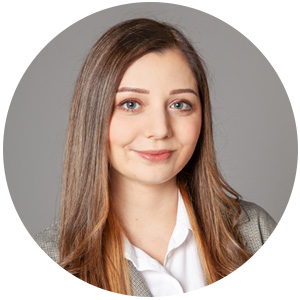
Katharina Geraridis
Phone: +49 231 75896-67
presse@akademie-fresenius.de
© Die Akademie Fresenius GmbH